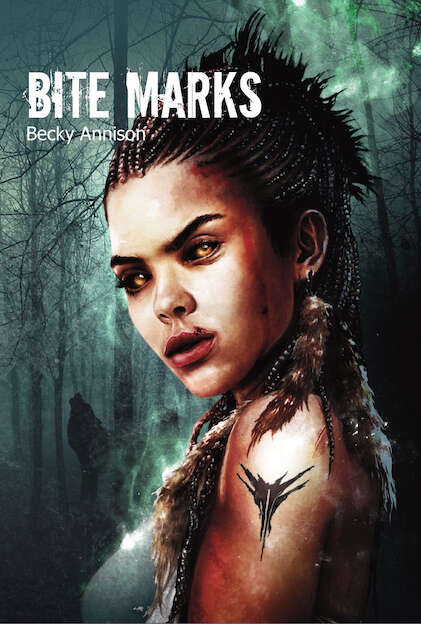I started to feel that I didn’t know roleplaying games well enough so I came up with the plan to read a roleplaying game corebook for every year they have been published. Selection criteria is whatever I find interesting.

Looking at the field of published roleplaying games, it feels like the various World of Darkness games originally published in the Nineties gobbled up the space for vampires, werewolves and similar creatures to such a degree that it was difficult for any competing game to emerge. There are surprisingly few games of this type outside the World of Darkness, although in recent years there have been some new ones. One example is Bite Marks, a Powered by the Apocalypse game about werewolves.
I think that the reason why World of Darkness dominated this field so thoroughly is creative in addition to business concerns. It goes down to the level of language: It’s hard to make a distinct vampire world without using terminology and concepts that have already been claimed by Vampire: the Masquerade and given distinct, specific meanings in the minds of the player base.
Bite Marks is setting-agnostic, focusing on a single werewolf pack as a family unit led by an authority figure, the Alpha. Wolf pack dynamics and alpha wolves are an interesting subfield of roleplaying game discourse familiar to anyone who’s followed discussions around Werewolf: the Apocalypse. It boils down to the fact that studies show that the traditionally understood hierarchical vision of the wolf pack is based on research done on wolves in captivity. In their natural habitat, wolves default to a much more family-like dynamic.
However, the concept of the alpha is a staple of games about werewolves. Indeed, it feels like we humans demand alphas from our wolf packs no matter how actual wolves behave. This is something related to our understanding of social dynamics that we enjoy projecting on the wolf.
Creatively, Bite Marks has an interesting stance on this. There’s an essay at the back of the book detailing the issues with the whole alpha concept, but the game is also very much built on authority, dominance and submission. The alpha wolf is a core element of the family dynamic it depicts.
At times, reading Bite Marks makes me think there’s a distinct BDSM vibe to the whole thing, although the Dominate move cannot be used for sex acts. There’s interesting language in the description of the move: “As a player, you might feel uncomfortable (or annoyed!) about being forced to take an action. Feeling that feeling is part of Bite Marks. Your character has to take the action, but you don’t have to like it, and your character doesn’t have to like it either.”
In these consent-minded times it’s interesting to see game mechanics that are so explicitly about coercion, specifically designed to function around that emotional space. I’ve always found that roleplaying games are a great medium for exploring these kinds of themes because of the distancing fictional framework and because safety tools make it possible for participants to avoid elements they don’t want to experience in the game.